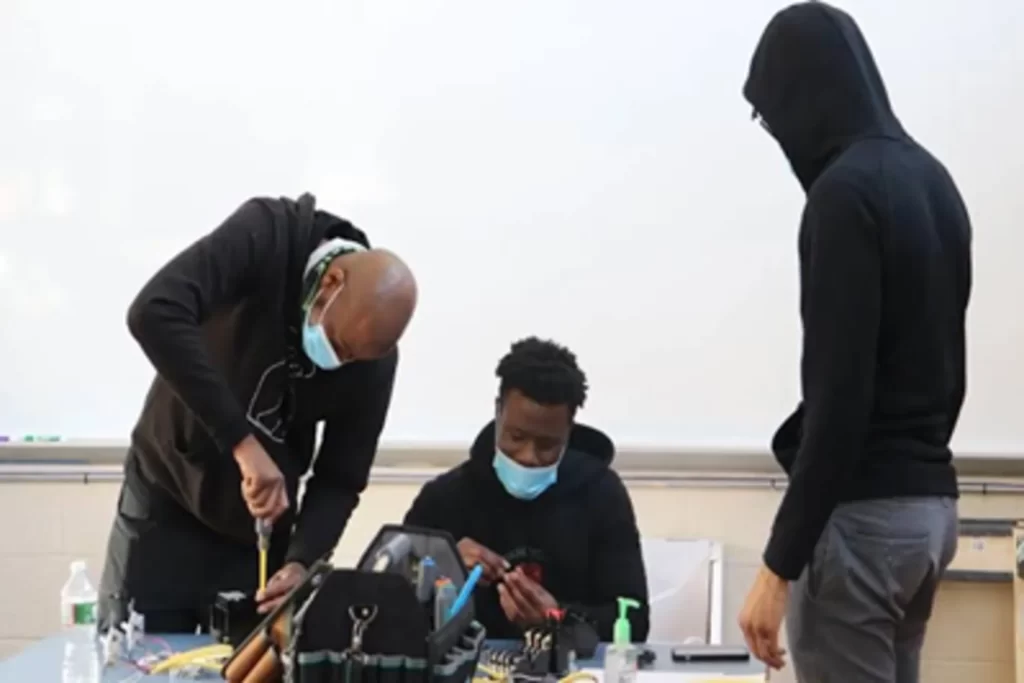The draw of online skilled trades training is apparent in a world where technology has broken down barriers and provided virtual experiences that span the globe. However, a truth arises regarding learning skills honed over centuries, such as masonry, electrician work, welding, building, and pipe fitting: online courses frequently need to offer the thorough skilled trades training required for skilled crafts. Why do these online resources find competing with skilled trade schools’ practical, time-tested teaching methods complicated?
Because they are conscious of the need for hands-on learning in their trades, trade programs have prospered for generations. Masonry is a tactile craft in which the feel of the mortar and the angle of each brick are lessons taught through touch. Masonry is more than merely laying bricks. Electricians must connect circuits rather than just observing them virtually. While pipefitters maneuver the intricate fittings and couplings using actual pipes, welders hone their craft with the rhythmic dance of metals. No matter how sophisticated, online training can’t replace the vital experience of learning trades through an apprenticeship program.
Vocational colleges provide mentorship outside of the classroom that is unmatched by online learning. It is more than just a syllabus that expert artisans impart to enthusiastic apprentices; it is a legacy. Training in a skilled trade involves more than just learning how to create or fix things; it also consists of developing the instincts from watching an expert at work. The tiny changes in technique that are discussed in person, as well as the innate awareness of materials, can only be acquired through face-to-face contact.

The trades employment stands out as a tribute to pragmatism in a culture obsessed with screens. The pillars of society are construction, welding, and pipe fitting, not just abstract ideas. At highly qualified trade schools, apprentices learn to build bridges, create intricate metalwork, and lay the foundations for cities for a career in trades. The tangible pride of a tradesperson comes from the knowledge that their abilities are not restricted to the virtual world but are inscribed into the structures surrounding us.
During their training at vocational trade programs, apprentices build the spirit of brotherhood that grows amidst the clang of hammers and the hiss of welding flames. The bond is created by shared sweat and respect developed through practical training. These organizations understand that despite the value of virtual contacts, relationships built at the workbench must be maintained. Through dialogues beyond screens, apprentice electricians share advice, masons gain insight from the grit of their coworkers, and welders ignite creativity.
Skilled vocational training focuses on adapting to and succeeding in the real world, where conditions are unpredictable and obstacles are ever-changing. While online training is practical, they cannot imitate the noise of a construction site, the precision required in welding, or the patience needed by a complicated pipe fitting. Building a career in trades necessitates a comprehensive education that includes academic knowledge and muscle memory developed through practice.
Vocational colleges play an essential role in the broad tapestry of learning, fostering tomorrow’s craftsmen and craftswomen. A trades job is more than just a salary; it’s an art that’s been honed over time, leaving a legacy with each project finished. While the digital era has advantages, there is no alternative to hands-on expertise in masonry, electrician work, welding, building, and pipe fitting.
While online courses provide convenience and accessibility, the skilled trades are still anchored in hands-on learning and supervision. Jobs in the trades necessitate a degree of expertise that can only be obtained via direct engagement with materials and experienced artisans. Skilled trade schools continue to serve as entry points to careers that impact our world, demonstrating the lasting power of hands-on learning in an increasingly digital age.
Read More